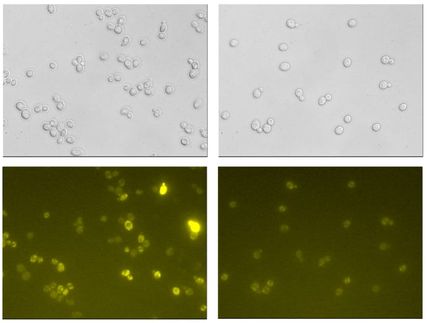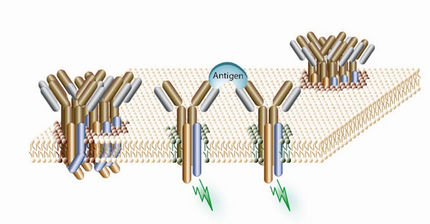UT Southwestern researchers probe kidney damage, protection in lupus
Advertisement
Kidney damage associated with the autoimmune disease lupus is linked to a malfunction of immune cells that causes them to congregate in and attack the organs, researchers at UT Southwestern Medical Center have discovered in a mouse study. In a separate study with an international team, the researchers also found that a certain set of genes appears to protect the kidneys from a different sort of immune attack in both mice and humans.
"These studies, taken together, uncover two important molecules that underlie the pathology of lupus, particularly kidney disease," said Dr. Edward Wakeland, chairman of immunology at UT Southwestern and co-senior author of the studies.
"In addition, they highlight a certain molecule as a potential target for treating this disease," he said.
In the first study, which appears in The Journal of Immunology, the researchers examined several strains of mice that mimic human lupus. They found that immune cells in those mice overproduced a particular molecule called CXCR4. In fact, the mice had up to twice as much CXCR4 as their normal counterparts in several types of immune cells. The lupus-prone mice also had more immune-system cells in their kidneys, indicating that the inflammatory action of the immune cells might be causing the kidney damage.
The CXCR4 molecule was already known to play a role in creating various types of blood cells and also has been shown to be active in cancer and AIDS. Cells with CXCR4 on their surface are attracted to another molecule released by cells in various organs, so they migrate toward those organs, including the kidney.
When the researchers treated the lupus mice with a substance that blocks CXCR4, the symptoms of lupus significantly diminished; many symptoms of kidney failure were averted; and the mice lived longer. The increased lifespan was greater when treatment began at an early age.
"This study indicates that drugs acting against CXCR4 might become useful therapies," said Dr. Chandra Mohan, professor of internal medicine and co-senior author of the studies.
In the second study, published in The Journal of Clinical Investigation, the researchers found that some members of a family of genes called kallikreins offered a degree of protection in both mice and humans against a type of kidney damage caused by a different mechanism.
For this mouse study, the researchers administered antibodies that attack a part of the kidney called the glomerular basement membrane, the portion of the organ that performs its main function of filtering wastes from blood. They then looked for genes that turned on or off in response to the antibody assault.
Nine forms of the kallikrein, or klk, gene became more active, resulting in a two- to sixfold increase in the proteins encoded by the genes in normal mouse strains, compared with lupus-prone strains. When some mice were given substances that block the action of kallikrein proteins, they showed more severe symptoms of lupus, suggesting that kallikreins protect against renal disease.
The researchers also studied 340 German patients with systemic lupus, matched with 400 healthy control subjects. The patients with lupus and kidney damage had klk genes that were different from those in the healthy patients. Similar findings were noted in a larger, more varied group of patients from Europe, the United States and Korea.
"All humans have Klk genes, but our findings show that some of us have a particular version that increases our risk for systemic lupus," Dr. Wakeland said.
Future research will examine the mechanisms by which CXCR4 and klk genes might be aberrantly regulated in lupus and how they could be therapeutically targeted in human lupus, the researchers said.
Other news from the department science
Most read news
More news from our other portals
See the theme worlds for related content
Topic world Antibodies
Antibodies are specialized molecules of our immune system that can specifically recognize and neutralize pathogens or foreign substances. Antibody research in biotech and pharma has recognized this natural defense potential and is working intensively to make it therapeutically useful. From monoclonal antibodies used against cancer or autoimmune diseases to antibody-drug conjugates that specifically transport drugs to disease cells - the possibilities are enormous

Topic world Antibodies
Antibodies are specialized molecules of our immune system that can specifically recognize and neutralize pathogens or foreign substances. Antibody research in biotech and pharma has recognized this natural defense potential and is working intensively to make it therapeutically useful. From monoclonal antibodies used against cancer or autoimmune diseases to antibody-drug conjugates that specifically transport drugs to disease cells - the possibilities are enormous




























































